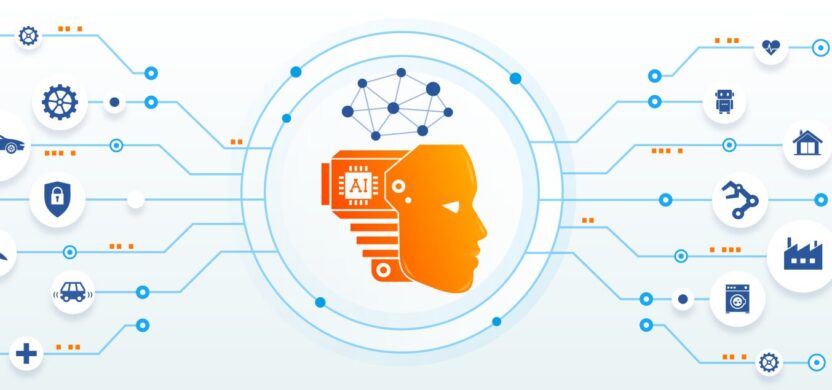
Commissions of Trust
- President of the Hellenic Artificial Intelligence Association
- President of the National Network of Gender Equality and Anti-discrimination Committees in Research Centers & Independent Research Institutes
- Vice-Chair of the ATHENA R.C. Coalition for Advancing Research Assessment (COARA) Committee
- Vice-Chair of the ATHENA R.C. Tenured Researchers’ Association
- Representative of the ATHENA R.C. Gender Equity and Anti-discrimination Committee.
In the Media
- “The art of Grammar Evolution“, Ted-X Chalkida, May 2017
- “Science & Technology need Women“, Queen.gr, Tribute to 5 distinguished Greek Women Scientists, February, 2024
- “Greeks & AI“, 102FM/ERT3, Radio Interview, February, 2022
- “The person behind the Scientist“, CogniHub, February, 2022
katerina pastra
PhD in Artificial Intelligence (Univ. of Sheffield, UK); MSc Machine Translation (UMIST, UK); BA in Linguistics (Univ. of Athens, Greece)
Katerina is the Founder & Head of the “Language and Robots Lab“, Lead Researcher at the Institute for Language and Speech Processing & affiliated with the Archimedes Unit, at the Athena Research Center, Greece. Her research is highly interdisciplinary; she employs neuroscientific findings on how the human brain works to develop software that enables intelligent systems and robots to understand and integrate words, actions and perceptions for effective interaction with humans and enhancement of their quality of life. Her research contributions comprise theoretical frameworks, experimental findings and technologies in semantics and multimodal cognition for embodied AI applications. Katerina has also founded and directed for a decade-long (2010-2020) the Cognitive Systems Research Institute (CSRI), the first Independent Research Institute internationally focused on Cognitive Systems.
Katerina has worked as a researcher in Artificial Intelligence since 2000, originally in the U.K. and then in Greece. Since a post-doc, she designed and coordinated her own basic research and development projects, such as the European-funded POETICON Projects series (2008-2016), with an international & highly interdisciplinary consortium and has contributed as a PI and/or Coordinator to more than 11 European and Nationally-funded Research and Development Projects. Among others, she is the recipient of a distinguishing John Latsis Foundation Award for research in Cross-media Semantics in Newspaper Caricatures, a Google Award for AAAI-event organization on vision-language Integration technologies and a Best Paper Award by the British Computer Society on applied multimodal technology for Crime Scene Investigation. Her teaching experience involves teaching in the U.K and in Greece at a post-graduate level (MSc programmes in Computer Science, Data Science, Language Technology and CyberPsychology); the courses include “Language and Cognitive Robotics“, “Artificial Intelligence“, “Natural Language Processing“, “Search Engines and Web Mining“, and “Human-Computer Interaction and Graphical User Interfaces”.
She has published a number of papers in international conferences and journals, including a Nature paper on large-scale verbal elicitation of object affordances and co-speech gestures and a Philosophical Transactions of the Royal Society B paper on the Minimalist Grammar of Action. She is an associate editor in Interaction Studies and Cognitive Computation and Systems and a highly experienced R&D project and proposal reviewer (15 years of experience, more than 8 different, international Research Funding Organisations). She has been an invited speaker in a number of venues addressing diverse audiences, most notably at TED-X and the European Parliament and has been invited to contribute to a number of international AI innovation Think-Tanks.
Katerina is an advocate of Open Science; with her lab members, she has developed a large set of open access datasets and open source pieces of software. Among others, she has the honour to serve as the President of the Hellenic Artificial Intelligence Association and as the President of GEARNET, the Greek Network of Gender Equity and Anti-discrimination Committees in Research Centers & Independent Research Institutes contributing thus to an unprecedented initiative for transforming the national research ecosystem with regards to Diversity, Equity and Inclusion.
Current TEaching (2024-2025)

Language and Cognitive Robotics
MSc in Language Technology (Univ. of Athens/Athena R.C.)
This course focuses on Cognitive Robotics and the role of Natural Language within such systems. Learners get acquainted with the idiosyncratic characteristics of natural language, perception and action and their semantic integration in multimodal everyday interaction and discourse. Step by step, they explore such integration through -among others- “syntax”, a fundamental cognitive mechanism that is core not only in verbal but also in sensorimotor behaviour and learn how syntax relates to long term memory. The latter involves getting familiar with a computational semantic memory module, in the form of a multimodal, referential, and recursive semantic network. The course is enriched with examples from (a) verbal human-robot interaction in everyday life, and (b) visual scene understanding and verbalization by robots. The main learning objective of the course is to introduce learners to an embodied perspective of Natural Language description and Engineering which renders reference a core requirement in language analysis and forms a bridge with sensorimotor behaviour.

Artificial Intelligence MSc in CyberPsychology (Univ. of Athens)
This course is an introduction to the interdisciplinary field of Artificial Intelligence (AI), with no pre-requisites and a special focus on no-code programming. The course goes through the history of AI, the rapid developments in the field and introduces basic concepts such as ones related to e.g., problem solving, data structures, knowledge representation, machine/deep learning and neural networks. Case studies and demonstrations of AI applications form a core part of the course, and so do interactive discussions on the contribution of AI to the quality of everyday life (AI4Good), as well as the dangers and ethical aspects of its use. The main learning objective of the course is to provide learners with a wholistic understanding of what AI is about, its strengths and limitations, as well as how they can use it both in their professional and personal life.
24
years of Research experience
73
Invited Talks
17
R&D Projects Completed
12
Open Datasets & Tools
15
years of R&D Reviewing experience
65
Paper Publications
15
Personal grants & Awards
27
Academic events organised
6
expert invitations in Science & innovation think-Tanks
32
Graduate & Postdoc level Researchers supervised